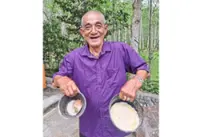PETALING JAYA: The answer to reducing the country's import bill and national food security may literally lie in our own backyard, say experts.
They said back in the old days, people planted crops near their homes for personal consumption with extra produce sold at local markets.
Uh-oh! Daily quota reached.









































